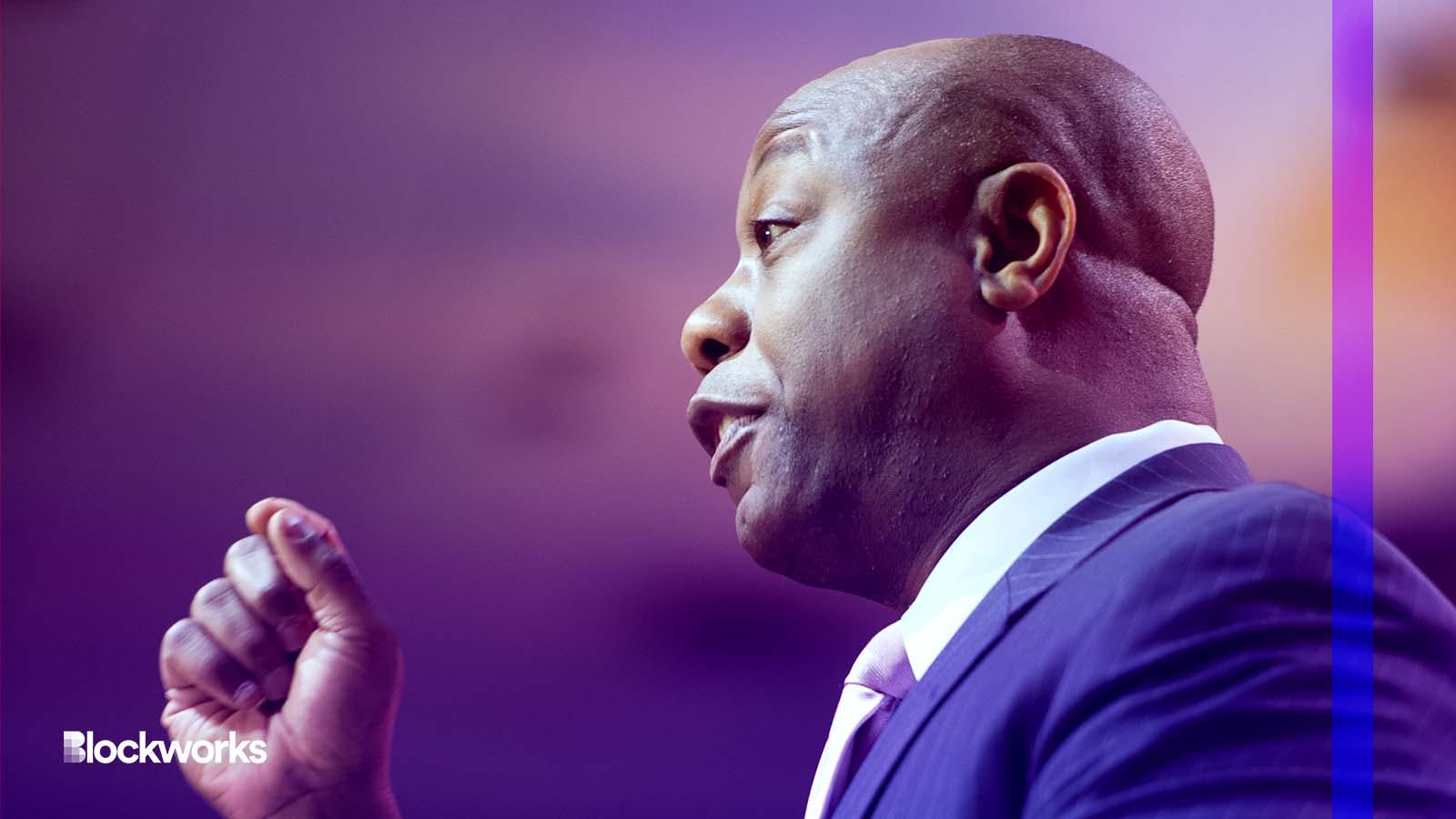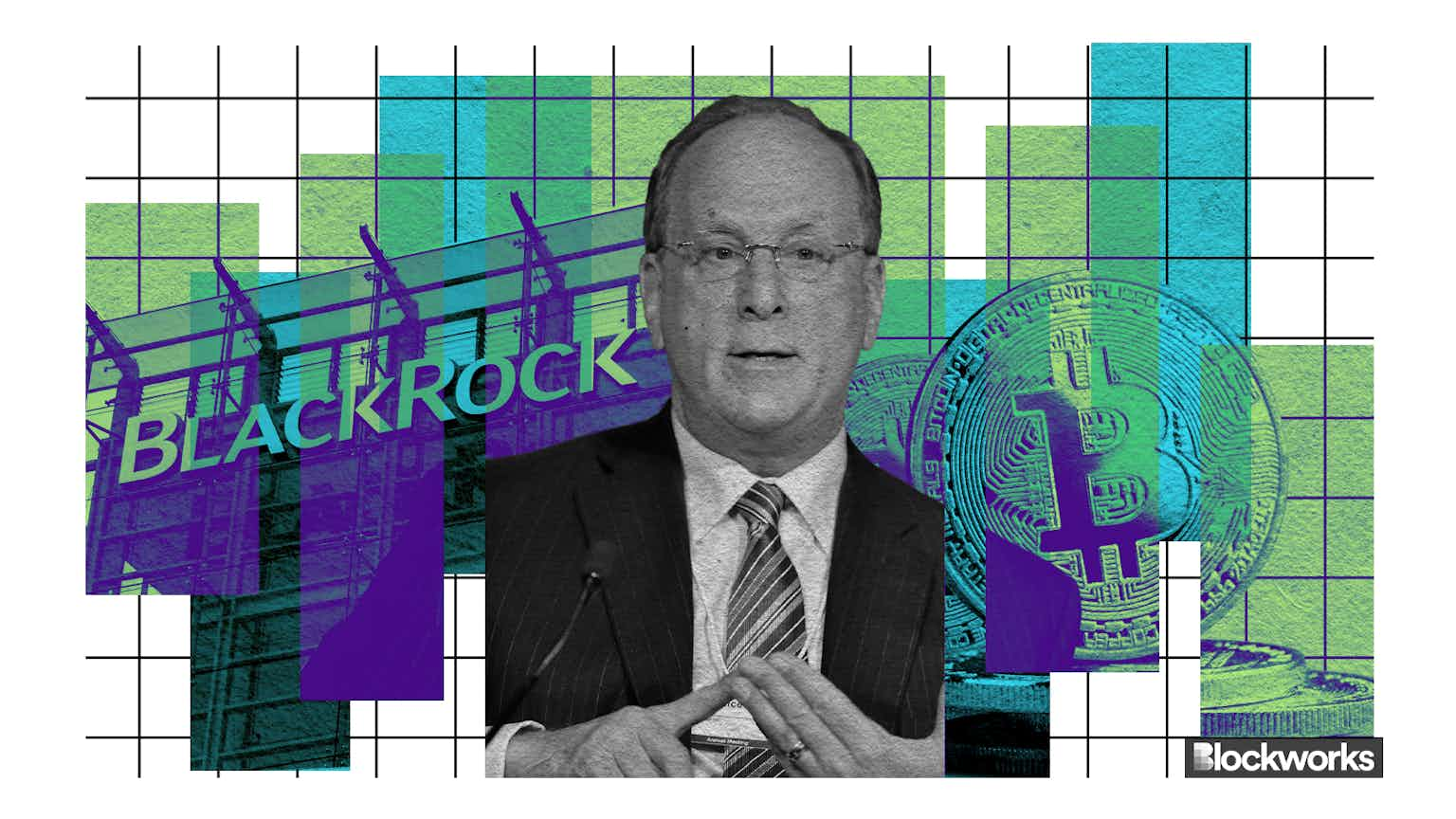Crypto Framework a Priority for Republican Senator Scott
US Sen. Tim Scott expected to urge US Senate Committee on Banking, Housing and Urban Affairs to act, citing space’s “several high-profile failures”

US Senator Tim Scott | Christopher Halloran/Shutterstock.com modified by Blockworks
South Carolina Sen. Tim Scott has his eye on a bipartisan regulatory framework for crypto following the crash of FTX and other industry players in 2022.
To serve as ranking member of the US Senate Committee on Banking, Housing and Urban Affairs, Scott is set to work with US Sen. Sherrod Brown, D-Ohio, a crypto critic who chairs the unit.
Scott, a Republican elected to the Senate in 2013, acknowledged “expansive growth” of the digital assets industry in a Thursday memo, first reported by Politico, adding that an increasing number of consumers are interacting with crypto.
“Several high-profile failures resulted in lost consumer assets, exposed regulatory gaps, and highlighted concerns with illicit finance,” the memo states. “Moving forward, the committee should work to facilitate a bipartisan regulatory framework.”
The senator could not immediately be reached.
Brown, who became chair of the Senate Banking, Housing, and Urban Affairs Committee in February 2021, has historically compared crypto to risky mortgage bonds and over-the-counter derivatives during the lead up to the financial crisis.
After the bankruptcy of crypto exchange FTX in December, Brown called for a framework “that looks at crypto products for what they are, not what crypto executives want them to be.”
“The things that look and behave like securities, commodities, or banking products need to be regulated and supervised by the responsible agencies who serve consumers,” he added at the time. “Crypto doesn’t get a free pass because it’s bright and shiny. Or because venture capitalists think it might change the world.”
Brown also urged US Treasury Secretary Janet Yellen in a November letter to work on legislation that would create authorities for regulators to supervise crypto players. He noted that single agencies “currently generally do not have a comprehensive view of crypto asset entities’ activities.”
Crypto firms are seemingly anticipating intensified regulatory scrutiny this year, as companies including Binance, Tether, and a16z have added lobbyists in recent months to boost their presences in Washington, DC.
Start your day with top crypto insights from David Canellis and Katherine Ross. Subscribe to the Empire newsletter.





